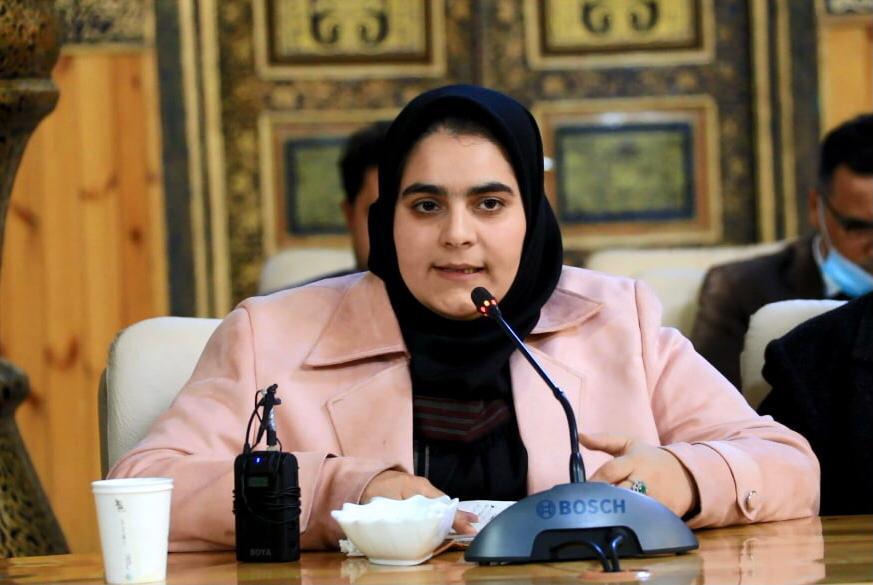HERAT CITY (Pajhwok): Sonia Ahmadi, a woman in western Herat province who has worked for peace in the country for the past five years, says efforts must be made on national level to preserve peace, reduce domestic violence and social strife.
The 25-year-old peace activist, who has graduated from the Faculty of Journalism and Mass Communication at Herat University, told Pajhwok Afghan News that she had been active in the field of peace and women rights for about five years.
“The efforts to bring peace to the country were so fascinating that they forced me to continue my activities with more enthusiasm.”
According to her, after 2017, she launched more than 150 seminars and training courses in cooperation with foreign donors in most districts of Herat, Farah and Badghis, all focusing on how to ensure peace and resolve conflicts in the country.
While being active in the field of peace and conflict resolution, she said her work enabled her to gain professional training inside and outside the country.
“In general, we have made the theme of peace and conflict resolution one of the official themes of the University of Herat. The textbook in this area was authored by a team of experienced professors at Herat University, and became the model for other public universities in Afghanistan to build social peace, and was taught as one of the official subjects at the university.”
Ahmadi said that the continuation of her activities led to the creation and management of social peace groups involving youth, students and women, and that she was able to carry out her responsibilities successfully in several organizations.
“My main goal as part of my activities has been to strengthen two issues in the field of peace; one social peace and second the role of women in the peace process,” she added.
Regarding peace seminars and training courses, she said: “In all the meetings, we worked for peace, we wanted a peace in which the God-given rights of our youth and women are protected. We talked about peace that the Afghan people want, not the peace that 20 politicians want.”
In addition to conducting seminars and training courses, she had mediated in some cases of disputes and domestic violence between families, and as a result of her tireless efforts, these issues had been resolved.
For example, she says: “One of my colleagues reported that one of her best friends had just gotten married in the city and she was having family problems; I and two or three other colleagues went to the newlyweds’ house; we talked to her in-laws who accepted everything. This problem may have led to family dispute, but by the will of God and the efforts of my colleagues, it was resolved.”
She believes that the process of peace-building begins from within human conscience and can convert into small social groups such as family, school and mosque communities, workplaces and districts, cities and provinces, and finally national and global.
Ahmadi hoped for a lasting and inclusive peace in the country and called on all people to work individually, collectively and nationally to preserve peace, reduce domestic violence and social strife.
sa/ma







GET IN TOUCH
NEWSLETTER
SUGGEST A STORY
PAJHWOK MOBILE APP